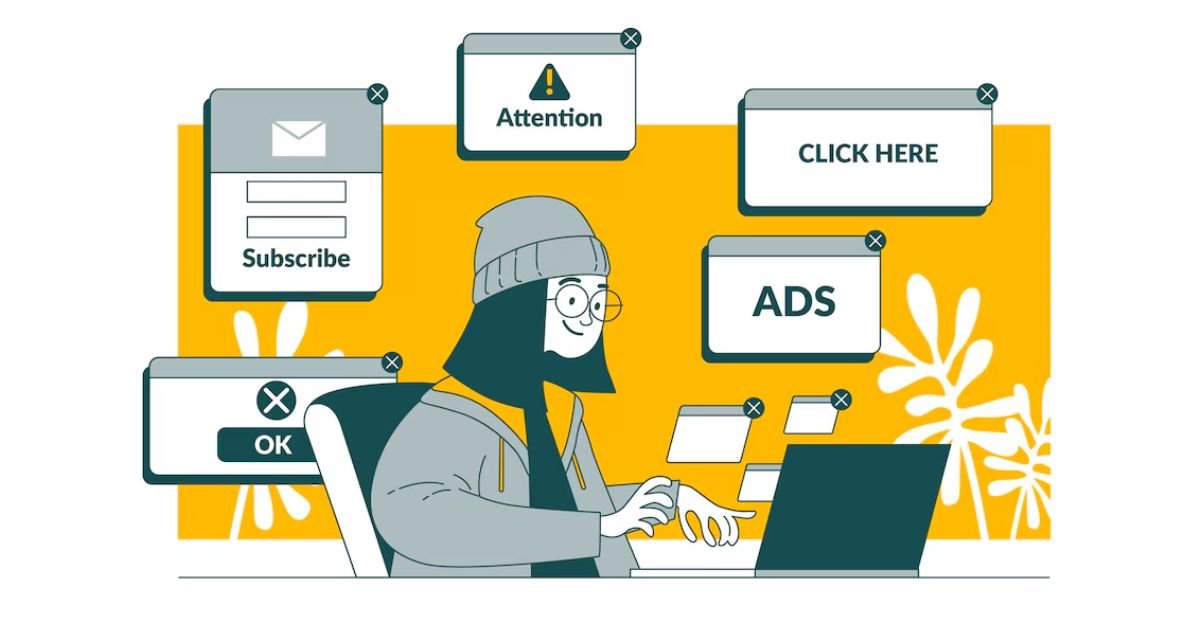Is Pay-Per-Click (PPC) Worth It?
Businesses are always looking for ways to get more customers. One of the most popular methods is Pay-Per-Click (PPC) advertising. But is it really worth it? Should you invest your money in PPC, or are there better options?
In this blog, we will break down everything you need to know about PPC, including its benefits, costs, challenges, and whether it is the right choice for your business.
What is PPC Advertising?
PPC stands for Pay-Per-Click, a type of online advertising where businesses pay a fee each time someone clicks on their ad. Instead of getting traffic to their website organically (through unpaid search results), businesses can buy visits using PPC.
One of the most well-known PPC platforms is Google Ads, but other platforms like Facebook Ads, Bing Ads, and Instagram Ads also offer PPC options.
For example, if you search for “best running shoes” on Google, you will likely see ads at the top of the search results. These ads are from businesses that are using PPC advertising to attract customers.
How Does PPC Work?
PPC works through a bidding system. Advertisers choose keywords they want to target and place a bid on how much they are willing to pay for a click. When someone searches for those keywords, Google (or another platform) runs an auction to determine which ads appear at the top.
The auction considers:
- Bid Amount – How much the advertiser is willing to pay per click.
- Ad Quality Score – How relevant and high-quality the ad is.
- Expected Click-Through Rate (CTR) – How likely people are to click on the ad.
If your ad wins the auction, it will appear at the top of search results. If someone clicks on it, you pay the amount you bid.
Benefits of PPC Advertising
Many businesses use PPC because it offers several advantages:
1. Quick Results
Unlike SEO (Search Engine Optimization), which takes months to show results, PPC can drive traffic instantly. As soon as your campaign is live, your ads start appearing in front of potential customers.
2. Targeted Advertising
PPC allows you to target specific audiences based on:
- Location (e.g., people in New York)
- Interests (e.g., people interested in fitness)
- Device Type (e.g., mobile users)
- Time of Day (e.g., showing ads only in the evening)
This makes sure your ads reach the right people at the right time.
3. Only Pay for Clicks
With PPC, you only pay when someone actually clicks on your ad. This means you’re not wasting money on people who are not interested.
4. Easy to Track and Measure
PPC platforms provide detailed analytics. You can see:
- How many people saw your ad
- How many clicked on it
- How many converted into customers
- Your return on investment (ROI)
This makes it easier to optimize and improve your campaigns.
5. Flexible Budgeting
You can start with any budget. Whether you have $5 or $5,000, PPC allows you to set daily spending limits and adjust them as needed.
Challenges of PPC Advertising
While PPC has many benefits, it also comes with some challenges:
1. Can Be Expensive
The cost of PPC depends on your industry. In competitive industries like law, finance, and healthcare, the cost per click (CPC) can be very high (sometimes $50+ per click).
If your budget is small, it might be difficult to compete with larger businesses.
2. Requires Ongoing Management
PPC is not a “set and forget” strategy. You need to constantly monitor, test, and adjust your campaigns to improve performance.
For example, you might need to:
- Change keywords
- Adjust bids
- Write new ad copies
- Optimize landing pages
If you don’t manage your PPC campaigns properly, you could lose money quickly.
3. Click Fraud
Sometimes, competitors or bots may click on your ads without any real interest. This can waste your budget and reduce ROI.
Most PPC platforms have fraud detection, but click fraud still exists.
4. Short-Term Results
Unlike SEO, which provides long-term traffic, PPC only works as long as you pay for ads. Once you stop running ads, your traffic stops immediately.
Is PPC Worth It for Your Business?
The answer depends on your business type, goals, and budget.
PPC is Worth It If:
✅ You need quick results
✅ You have a good budget
✅ Your industry has high customer value (e.g., real estate, law firms)
✅ You have a solid marketing strategy
PPC May Not Be Worth It If:
❌ You have a very low budget
❌ Your profit margins are small
❌ You don’t have time to manage campaigns
❌ Your website is not optimized for conversions
How to Make PPC More Effective
If you decide to invest in PPC, here are some best practices to get better results:
1. Choose the Right Keywords
Use keyword research tools like Google Keyword Planner to find the best keywords for your business. Focus on high-intent keywords (e.g., “buy used car parts online”) rather than generic ones.
2. Write Compelling Ads
Your ads should be clear, engaging, and include a strong call to action (CTA). Example:
“Get 20% Off Used Car Engines – Limited Time Offer! Order Now!”
3. Optimize Your Landing Pages
Your landing page should:
✅ Load quickly
✅ Be mobile-friendly
✅ Have clear CTAs
✅ Match the ad’s promise
4. Use Negative Keywords
Negative keywords prevent your ad from showing on irrelevant searches. For example, if you sell used auto parts, you can add “free” as a negative keyword so that people looking for free auto parts won’t click on your ad.
5. Test and Optimize
Run A/B tests on:
- Different ad copies
- Keywords
- Landing pages
Always analyze the results and improve your strategy.
Conclusion: Is PPC Worth It?
PPC can be a great investment if done correctly. It provides quick results, targeted advertising, and measurable data. However, it requires time, money, and ongoing management.
If you have the budget and strategy in place, PPC can drive high-quality leads and increase sales. But if you’re looking for a long-term solution, combining PPC with SEO might be the best approach.
Frequently Asked Questions
What is Pay-Per-Click (PPC) advertising?
PPC is an online advertising method where businesses pay a fee each time someone clicks on their ad. It helps drive traffic quickly to websites. Ads appear on search engines, social media, and other platforms, allowing businesses to reach potential customers based on keywords, location, and interests.
How much does PPC advertising cost?
The cost of PPC varies based on industry, keywords, and competition. Some keywords cost a few cents per click, while others cost $50 or more. Advertisers set a budget and bid on keywords, and the actual cost depends on ad performance and competition in the market.
What are the benefits of using PPC ads?
PPC offers quick traffic, targeted advertising, and measurable results. Businesses can reach specific audiences, track campaign performance, and adjust ads in real time. Since you only pay for clicks, it can be a cost-effective way to generate leads and increase sales when managed properly.
Is PPC better than SEO for business growth?
PPC provides fast results but stops once you stop paying, while SEO takes longer but offers long-term traffic. A combination of both is ideal—PPC for immediate leads and SEO for sustainable growth. The best choice depends on your budget, goals, and competition in your industry.
How can I make my PPC campaigns successful?
Success in PPC requires choosing the right keywords, writing compelling ads, and optimizing landing pages. Using negative keywords, setting a proper budget, and testing different ad copies help improve performance. Regular monitoring and adjustments ensure you get the best return on investment (ROI).


